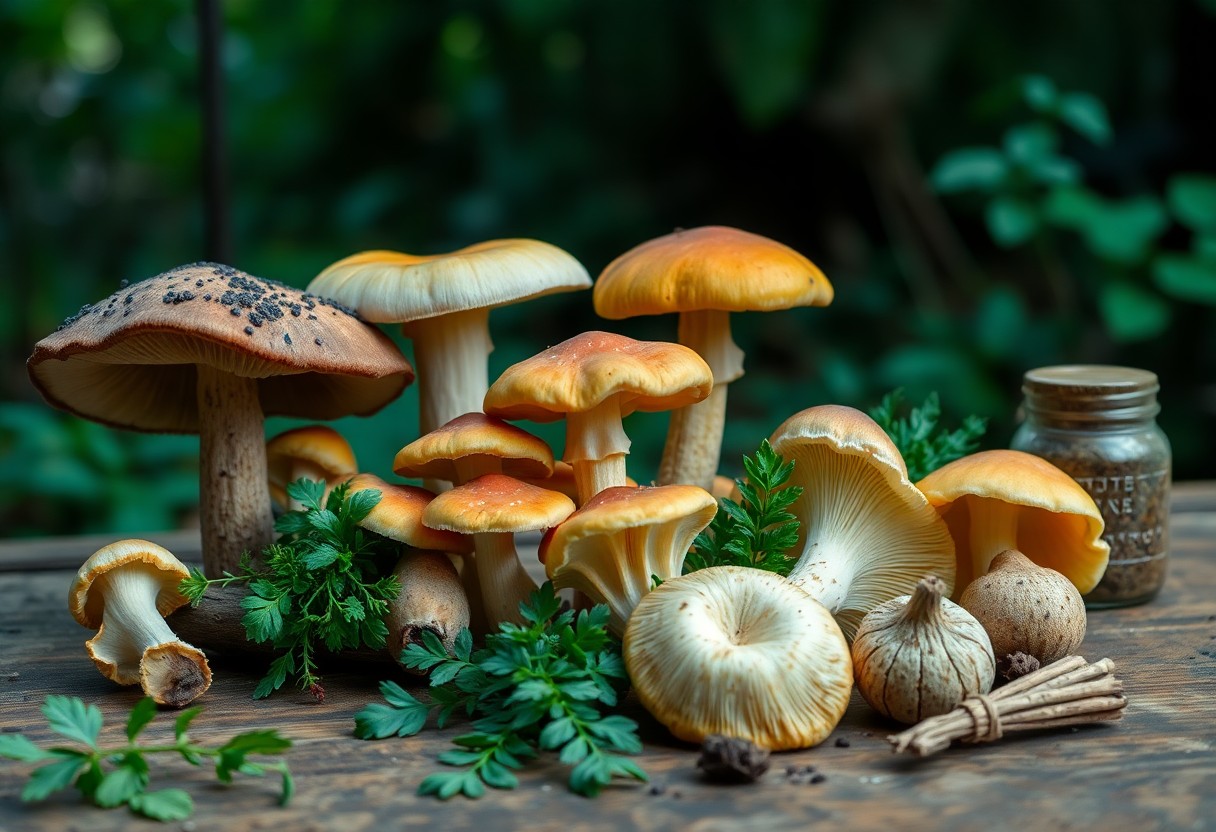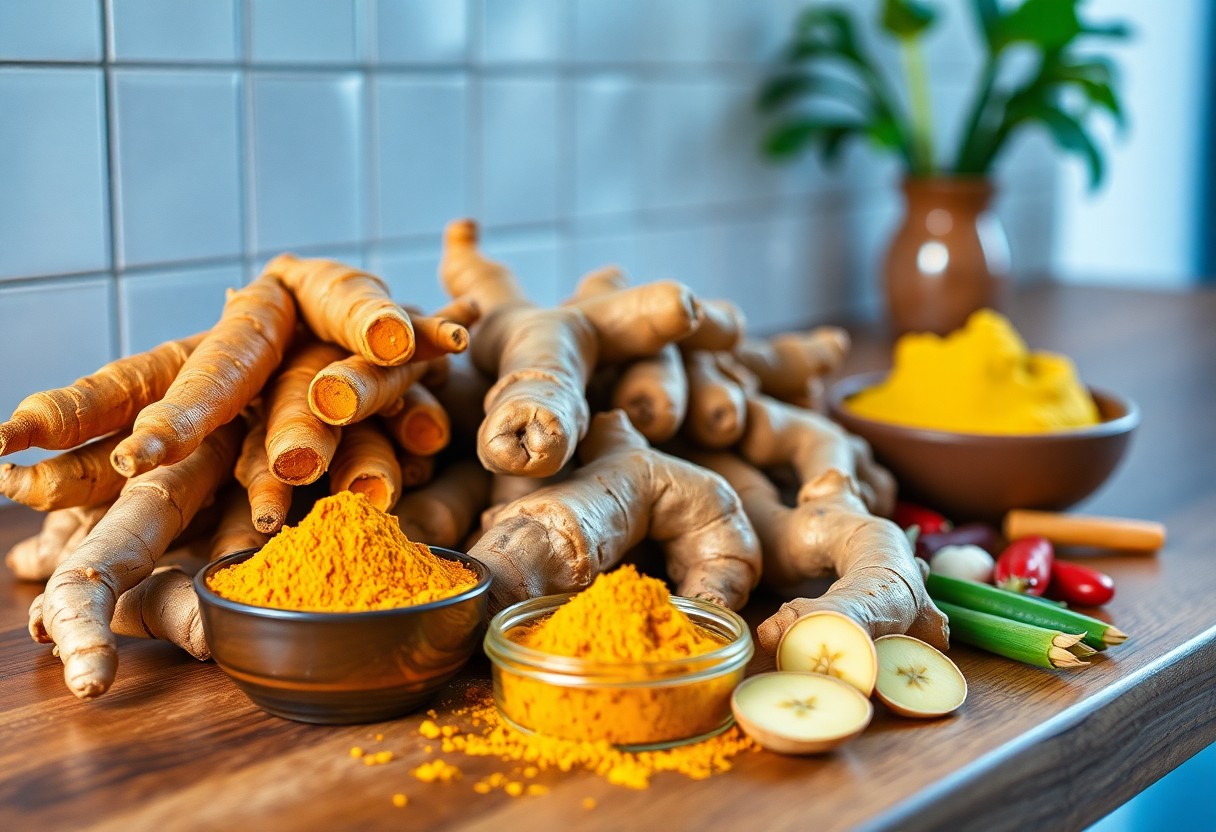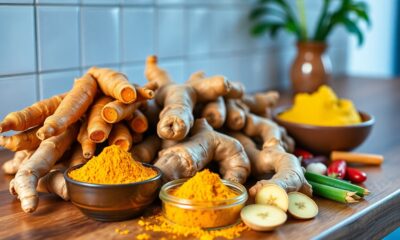Health & Society
Scientology in Europe Celebrated World Drug Day on June 26

EINPRESSWIRE // In commemoration of the International Day Against Drug Abuse and Illicit Trafficking on June 26, European cities were abuzz with activities aimed at raising awareness about the devastating consequences of drug use. Volunteers from the Church of Scientology and the “Foundation for a Drug-Free Europe” took to the streets, as they have been doing for approximately 25 years, to inform tens of thousands of individuals about the detrimental short-term, medium-term, and long-term effects of drugs.
The release of the World Drug Report 2023 by the United Nations Office on Drugs and Crime (UNODC) sheds light on the continued surge in illicit drug supply and the increasingly agile trafficking networks that exacerbate global crises and pose challenges to health services and law enforcement responses.
Key Findings from the UNODC World Drug Report 2023
According to the report(1), new data reveals that an estimated 13.2 million people worldwide engaged in drug injection in 2021, marking an 18% increase from previous estimates. Additionally, global drug use reached over 296 million individuals in 2021, signifying a 23% rise over the past decade. Shockingly, the number of people suffering from drug use disorders has soared to 39.5 million, reflecting a staggering 45% increase over the course of ten years. The report also delves into various critical aspects, including drug trafficking’s impact on the environment in the Amazon Basin, clinical trials involving psychedelics and medical cannabis use, drug use in humanitarian settings, innovations in drug treatment and other services, and the connection between drugs and conflict.
Remarkable Drug Prevention and Education Initiatives in Europe:
In response to the report’s findings and in celebration of the International Day Against Drug Abuse and Illicit Trafficking on June 26, various drug prevention activities were organized across Europe. These initiatives aimed to raise awareness among youth, parents, and the wider public about the severe health repercussions of drug use.

Let’s take a closer look at some of these remarkable initiatives:
- Czech Republic: The 19th Cyclo-run for a Drug-Free Czech Republic kicked off from Prague, covering a distance of approximately 1,300 kilometers over ten days and passing through 41 cities. During the event, volunteers had the opportunity to engage with 50 city representatives, enlightening them about the drug situation concerning teenagers and the urgent need for primary drug prevention and education. The campaign successfully educated 8,100 children and distributed 95,000 drug information materials from The Truth About Drugs. The leaders of the initiative were also invited to present their action on national TV Nova.
- France: Volunteers from the French non-profit association “Dites Non à la Drogue – Oui à la Vie” actively participated in drug prevention activities across various cities, including Agen, Angers, Avignon, Chatelaudren, Epinay-sur-Seine, Lannion, Lyon, Maffliers, Marseille, Tregastel, Ploumanach, Perros-Guirec, and Vaux-en-Velin. They spread awareness in streets, shops, pharmacies, and other locations, receiving warm welcomes and support from the public, including law enforcement personnel and even a former drug addict. In addition, the Paris team conducted a public lecture.
- Belgium: Members and volunteers of the Say No To Drugs Belgium association set up information booths in several towns and organized a well-attended public lecture in Brussels. The lecture, titled “The Truth About Drugs,” took place in the Auditorium of the Churches of Scientology for Europe. Additionally, the President of Drug Free Belgium was interviewed on Brussels’ radio station Arabel, discussing the significance of the International Day Against Drug Abuse and Illicit Trafficking and providing crucial information to the public.
- Portugal: In Lisbon, the drug prevention team conducted a large-scale distribution near the iconic Belem Tower, a popular tourist destination. The volunteers reached out to the public, including visitors, to raise awareness about the health-related problems associated with drug use.
- Italy: The Drug prevention “Dico No Alla Droga-Bergamo” team organized the 6th Motogiro to promote a drug-free Italy. Participants, wearing green jackets, embarked on a journey that took them through picturesque locations such as Passo di Zembla, Lovere, Iseo Lake, Riva di Solto, and Sale Marasino. The event lasted four hours and concluded with a warm reception from the President of the association, officials, sponsors, and supporters.
- Austria: The “Sag Nein Zu Drogen” team from Vienna set up an information stand at the Donauinselfest, a popular cultural festival. Volunteers were amazed by the high level of interest from young people in obtaining drug educational brochures from The Truth About Drugs series. Additionally, the team distributed bracelets with the message “Say No To Drugs – Say Yes to Life,” which garnered significant attention and support, including from a social worker and addiction counselor.
- Switzerland: In Chapelle (Fribourg), the drug prevention team organized the 6th Olympiades, which included briefings on drugs and engaging games for approximately 40 participants. Volunteers in Geneva set up a drug information stand at Cornavin station, while the Lausanne team distributed 800 booklets of The Truth About Drugs in the city center. Furthermore, drug education materials were distributed at the Fribourg station. In Ticino, the southern region known for Lake Maggiore and Lake Lugano, the “Dico No alla Droga” team actively distributed information and raised awareness about the harmful effects of drug use, receiving appreciation from young people, parents, and the general public.
- Spain: Seventeen volunteers gathered at Puerta del Sol, a bustling location attracting people from Spain and around the world. They distributed booklets to approximately 4,000 individuals and families, aiming to prevent drug crises at a time when substances like marijuana are increasingly portrayed as socially acceptable.
- Greece: Volunteers in the Zappeion area distributed anti-drug information booklets to pedestrians, as well as motorcycle and car drivers. They recommended visiting the website, which provides audiovisual material translated into at least 17 languages.
- Germany: Volunteers from the “Say NO to drugs, say YES to life” initiative organized various information events and distribution campaigns in Hamburg, Stuttgart, Munich, Berlin, and Frankfurt am Main. Their goal was to raise awareness of the drug crisis and educate the public. During these campaigns, nearly 4,000 educational booklets from the “Facts about Drugs” series were distributed to interested citizens. The volunteers received encouragement from the population, including educators and social workers who expressed appreciation for the free availability of educational material. The events highlighted the underestimated dangers of drug use and the deceptive promises made by dealers. One individual shared a personal story of how drug use negatively impacted a family member, emphasizing the importance of education on the adverse effects of drugs.
These impactful initiatives across Europe were supported by the “Foundation for a Drug-Free World,” established in 2006 to distribute educational materials and develop new resources to address the ever-changing landscape of drug trends. As a network of organizations, including the “Foundation for a Drug Free Europe,” they strive to combat drug abuse and promote a drug-free society.

Conclusion:
The collective efforts of volunteers, organizations, and communities in Europe underscore the urgent need to prioritize prevention, education, and access to treatment services. By taking a people-centric approach and eliminating stigma and discrimination, society can tackle the drug crisis more effectively. Moreover, law enforcement agencies must adapt to combat agile criminal networks and the proliferation of synthetic drugs. Only through comprehensive and coordinated actions can Europe and the international community address the challenges posed by drug abuse and illicit trafficking, safeguarding the health and well-being of individuals and communities alike.
The “Foundation for a Drug-Free World” serves as the central organization for the “Foundation for a Drug Free Europe” and all its national and local branches. Established in 2006, its primary mission is to distribute educational materials and develop new resources to address the ever-evolving landscape of drug trends. Over time, the Foundation has grown into a global network encompassing approximately 200 local groups around the world. With the invaluable support of the Churches of Scientology and Scientologists, the Foundation ensures the widespread availability of the secular “Truth About Drugs program” and drug education materials, free of charge, on a global scale. Individuals interested in learning more can enroll in Drug-Free World’s free e-courses at drugfreeworld.org/course.
Recognizing the destructive role of drug abuse in the disintegration of society’s fabric, Scientology Founder L. Ron Hubbard set the foundation for drug prevention and education programs that continue to make a positive impact. By celebrating World Drug Day and supporting initiatives that prioritize prevention and education, Europe takes significant strides towards creating a safer, drug-free future for all.
Furthermore, the Scientology Network features documentaries from the original “Voices for Humanity” series, showcasing how people worldwide are utilizing the Foundation for a Drug-Free World’s Truth About Drugs initiative to effectively address the urgent problem of drug abuse through prevention and education.
The Scientology religion, founded by author and philosopher L. Ron Hubbard, traces its origins back to the establishment of the first Church of Scientology in Los Angeles in 1954. Since then, the religion has expanded to include more than 11,000 churches, missions, and affiliated groups, with millions of members in 167 countries. The Church of Scientology has achieved religious recognition in numerous countries, including the USA, ECtHR, Spain, United Kingdom, Netherlands, Portugal, Canada, Sweden, Italy, South Africa, and a growing number of nations.(2)
——-
References:
1) https://www.unodc.org/unodc/en/press/releases/2023/June/unodc-world-drug-report-2023-warns-of-converging-crises-as-illicit-drug-markets-continue-to-expand.html
2) https://www.scientologyreligion.org
Health & Society
Danish Youth Take Charge: A Drug-Free Future, One Shop at a Time

KINGNEWSWIRE – Press release // In the heart of Copenhagen, a group of 15 young activists—aged 10 to 20—are rewriting the narrative on youth empowerment and community health. Inspired by the principles of the Convention on the Rights of the Child and their faith in the Church of Scientology, these teens are spearheading a grassroots campaign to create a drug-free environment. Armed with educational booklets from The Truth About Drugs initiative, they’re turning local businesses into hubs of prevention, proving that age is no barrier to driving societal change.
From Booklets to Action: A Youth-Led Movement
Having started over a month, the group visits shops across Copenhagen, gaining the support of owners and shop assistants to display drug prevention materials at checkout counters. Their approach is simple but impactful: make critical information accessible to everyday customers, sparking conversations about the dangers of substance abuse. “They’re not just kids handing out flyers,” says Giulia, who guides them in this endeavor. “They are showing adults that they care about our future—and that they are taking responsibility for it.”
Their efforts align with global frameworks like the UN Convention on the Rights of the Child, which emphasizes youth participation in decisions affecting their lives. By engaging directly with businesses, the group embodies the spirit of some of UNICEF’s programs, which empowers young people to design solutions for community challenges. “These teens are bridging gaps between generations, ensuring their message resonates where it matters most” said Giulia, in charge of public affairs at the Church of Scientology in Denmark.
Tackling a Local Crisis with Global Lessons

Denmark has long grappled with youth drug use, particularly in areas like Copenhagen’s Freetown Christiania, where hash consumption reportedly remains prevalent. The group’s campaign addresses this head-on, mirroring strategies from what is done in other countries, and try to instil this to every other European country, combining education with community outreach to combat addiction before it arrives.
Their work also reflects a vision of supporting recovery and prevention, proving that empowerment starts long before crisis intervention. The program, one of the world’s largest non-state drug prevention initiatives, is fully funded by members of the Church of Scientology, inspired by L. Ron Hubbard’s research on drug prevention and rehabilitation. However, the teens emphasize the universal message of their materials: facts about drug risks, peer pressure, and making healthy choices “Our religion teaches us to serve others, and do it with factual information” says one of the participants, “this is about saving lives, not religious beliefs.”
A Model for Youth Agency Worldwide
The group’s initiative resonates with many international programs, by equipping young people to drive social change. By partnering with local businesses, this recently started Truth About Drugs youth group, is fostering a culture of collective responsibility. Their actions also echo WHO’s call for youth engagement in health advocacy, positioning them as allies in Denmark’s public health goals.
As these teens inspire shop owners and customers alike, they’re proving that meaningful youth participation isn’t a fairy tale. It’s a blueprint for building resilient communities—one booklet and one conversation at a time. “They are not waiting for permission to change the world,” says Ivan Arjona, Scientology’s representative to the European Union and the UN “They are already doing it.”
Health & Society
The Magic of Mushrooms – Exploring Their Nutritional and Healing Powers

Many people are fascinated by the world of mushrooms, captivated by their remarkable nutritional benefits and therapeutic properties. He, she, and they often overlook the fact that some species can be highly toxic, while others have the potential to boost immunity and act as natural remedies. By delving into the myriad varieties and their unique qualities, individuals can uncover how mushrooms not only enhance culinary experiences but also promote overall health and well-being. This exploration highlights both the magic and mystery of these fungal wonders.
Key Takeaways:
- Mushrooms are rich in imperative nutrients, including vitamins, minerals, and antioxidants that support overall health and well-being.
- Certain varieties of mushrooms have been linked to immune system support, potentially enhancing the body’s ability to fight infections and diseases.
- Some mushrooms, such as reishi and lion’s mane, are known for their adaptogenic properties, helping the body adapt to stress and improve mental clarity.
- Incorporating mushrooms into a balanced diet can contribute to a variety of health benefits, such as improved digestion and heart health.
- Research is ongoing into the potential therapeutic effects of mushrooms, with some studies suggesting benefits for mental health, including anxiety and depression management.
Nutritional Benefits of Mushrooms
While many people overlook mushrooms as a mere side dish, their nutritional benefits are remarkable. They serve as a low-calorie source rich in necessary nutrients, providing a variety of dietary fibers, proteins, and carbohydrates. Additionally, mushrooms are known to support immune function and may improve overall health by contributing to balanced nutrition. As he or she incorporates mushrooms into their diet, they may find a plethora of health benefits waiting to be discovered.
Essential Vitamins and Minerals
Benefits of mushrooms include their high content of necessary vitamins and minerals, which plays a significant role in overall health. They are sources of Vitamin D, potassium, selenium, and B vitamins, all of which contribute to various bodily functions such as immune support and energy production. Including mushrooms in diet may help individuals meet their nutritional needs without excessive calorie intake.
Antioxidant Properties
Vitamins within mushrooms not only nourish the body but also play a significant role in combating oxidative stress. Antioxidant properties found in mushrooms help mitigate damage caused by free radicals, which can lead to chronic illnesses and accelerated aging. The presence of ergothioneine and glutathione in various mushroom species further enhances their ability to protect cells from oxidative damage. Emphasizing the importance of these antioxidants, individuals can see how incorporating mushrooms into their meals promotes better health and longevity.
The unique combination of antioxidants in mushrooms, particularly ergothioneine, provides significant protection against oxidative stress and inflammation. Studies have shown that they can neutralize harmful free radicals, promoting cellular health and reducing the risk of chronic diseases such as heart disease and cancer. By regularly consuming mushrooms, he or she can harness these protective effects, making a positive impact on their well-being. Thus, mushrooms stand out as a powerful ally in the pursuit of optimal health.
Healing Powers of Medicinal Mushrooms
Clearly, the world of medicinal mushrooms offers profound benefits for holistic health. These fungi, rich in bioactive compounds, have gained attention for their potential in supporting healing processes within the body. From boosting immunity to combating inflammation, medicinal mushrooms serve as nature’s remarkable remedy, appealing to those seeking natural alternatives to traditional medicine.
Immune System Support
On their journey towards improved health, many individuals turn to medicinal mushrooms for their ability to enhance immune system function. Varieties like reishi and shiitake contain polysaccharides, which are known to stimulate immune response, helping the body defend against infections and diseases effectively. Their adaptogenic qualities further assist the body in managing stress, which can negatively impact immune health.
Anti-Inflammatory Effects
Systematic inflammation can lead to a variety of health issues, and medicinal mushrooms provide a natural solution. They are rich in compounds that exhibit anti-inflammatory properties, which can significantly reduce inflammation throughout the body. Studies have suggested that mushrooms like cordyceps and turkey tail help modulate inflammatory responses, potentially alleviating symptoms related to chronic conditions such as arthritis and other inflammatory diseases.
Anti-inflammatory properties in these mushrooms arise from their active compounds, including triterpenes and beta-glucans. These components effectively inhibit pro-inflammatory cytokines, reducing swelling and discomfort. By including medicinal mushrooms in their diets, individuals may experience enhanced recovery from inflammation-driven health issues, showcasing their potential role as a complementary approach in managing inflammatory conditions. They can significantly contribute to overall wellness and resilience, allowing individuals to maintain a healthier lifestyle.
Types of Mushrooms and Their Uses
Now, understanding the different types of mushrooms and their uses can enhance culinary and medicinal practices. Each mushroom type offers unique flavors and health benefits:
| Type | Uses |
| Button Mushroom | Culinary, rich in nutrients |
| Shiitake | Dietary supplement, immunity booster |
| Reishi | Stress relief, traditional medicine |
| Oyster Mushroom | Culinary, good source of protein |
| Chaga | Antioxidant, anti-inflammatory |
This understanding is key to unlocking the extensive benefits of mushrooms in daily life.
Culinary Mushrooms
Mushrooms offer a variety of flavors and textures that elevate countless dishes. Popular options like cremini and portobello are often used in gourmet cooking, while others like shiitake and oyster provide distinctive tastes that enhance soups, stir-fries, and sauces. Their versatility and nutritional value make them important ingredients in both vegetarian and meaty cuisines.
Medicinal Mushrooms
Medicinal mushrooms provide numerous health benefits that can support wellness. Some prominent types include turkey tail, known for its immune-boosting properties, and chaga, celebrated for its antioxidant effects. With a rising interest in natural remedies, these mushrooms have gained popularity for their immune, cognitive, and anti-inflammatory benefits.
At the forefront of natural healing, she highlights that while many medicinal mushrooms offer tremendous advantages, he cautions against some varieties that can be toxic. For instance, the Amanita muscaria mushroom can lead to severe health complications, underscoring the importance of proper identification. On the positive side, mushrooms like Lion’s Mane are celebrated for enhancing cognitive function and reducing anxiety. They serve as potent tools for those seeking holistic health solutions.
Incorporating Mushrooms into Your Diet
Once again, incorporating mushrooms into one’s diet can enhance overall health while adding unique flavors to a variety of meals. He or she can sauté them, add them to salads, or use them as a meat substitute in various recipes, tapping into their rich nutritional profile. Whether fresh, dried, or powdered, they can be effortlessly blended into everyday dishes. Consider making a habit of including these versatile fungi to reap their numerous benefits for heart health and immunity.
Culinary Tips and Recipes
Between experimenting with different types of mushrooms, such as portobello or shiitake, he or she can discover their diverse culinary applications. Here are some quick tips:
- Use fresh mushrooms in pasta dishes for added texture.
- Incorporate dried mushrooms into soups for depth of flavor.
- Try mushroom powders as a seasoning for a savory kick.
- Consider stuffed mushrooms as a delicious appetizer.
After exploring various recipes, they will find endless possibilities to enjoy mushrooms while benefiting from their health advantages.
Supplements and Extracts
Across the world, mushroom supplements and extracts are gaining popularity for their potential health benefits. He or she may consider using these offerings, such as reishi, lion’s mane, or cordyceps, which are linked to improved cognitive function, stamina, and immune support. Importantly, they should consult a healthcare professional before incorporating these into their regimen to avoid potential interactions with medications or existing health conditions, ensuring a safe and effective experience.
This exploration of mushroom supplements reveals that while many find them beneficial for enhancing overall wellness, one must also be aware of the possible side effects they could encounter. As with any supplement, it is vital to choose high-quality products from reputable sources. Caution is warranted since some mushrooms can also be toxic, leading to serious health risks if not properly identified or harvested. Ultimately, he or she should approach mushroom supplementation thoughtfully to embrace the positive effects while being mindful of safety.
Safety and Precautions
After understanding the benefits of mushrooms, it’s vital for individuals to prioritize safety and precautions when incorporating them into their diet or wellness routines. Correct identification and knowledge of potential risks can prevent adverse effects, ensuring they enjoy the beneficial properties of these fungi without unnecessary harm.
Identifying Edible Mushrooms
Along their journey to explore mushrooms, individuals must become adept at identifying edible varieties. Familiarizing oneself with local species and consulting reputable field guides or experts can significantly reduce the risk of consuming toxic mushrooms. Proper identification is key to enjoying the nutritional and healing benefits mushrooms offer.
Potential Allergies and Interactions
Among the numerous benefits of mushrooms, individuals should be aware of potential allergies and interactions that could arise. These can vary from mild discomfort to severe reactions, depending on the person’s unique sensitivities.
Considering the diverse range of mushroom species, it is important for individuals to be vigilant about potential allergies and interactions. Some individuals may experience allergic reactions, which can manifest as gastrointestinal distress or skin irritations. Additionally, mushrooms can interact with certain medications, such as anticoagulants, increasing the risk of adverse effects. To safeguard health, consulting a healthcare professional before introducing new mushroom varieties into the diet is highly advisable, particularly for those with existing health conditions or medications.
Future Research and Discoveries
Unlike conventional foods, mushrooms hold vast potential waiting to be unlocked through further research. He and she recognize that ongoing studies may unearth new nutritional benefits and therapeutic applications, especially in treating conditions such as depression and anxiety. They also caution that while many mushrooms boast healing properties, others can be toxic or harmful. Continued exploration into the complex ecosystems of fungi may lead to groundbreaking discoveries in medicine, agriculture, and sustainability, cementing mushrooms as a vital focus for future research endeavors.
Summing up
The exploration of mushrooms reveals their remarkable nutritional and healing properties, showcasing their roles in enhancing immune function and promoting overall well-being. They provide imperative vitamins, minerals, and antioxidants that benefit health, while certain varieties exhibit potential medicinal qualities that have intrigued researchers. By incorporating mushrooms into their diets or utilizing them in various health remedies, individuals can harness the full spectrum of benefits these natural wonders offer. Thus, she, he, and they can appreciate the magic of mushrooms in fostering a healthier lifestyle.
FAQ
Q: What are the nutritional components of mushrooms?
A: Mushrooms are low in calories and fat while being a good source of important nutrients. They contain a variety of vitamins such as B vitamins (including riboflavin, niacin, and pantothenic acid), vitamin D, and antioxidants. Additionally, mushrooms are rich in minerals such as selenium, potassium, and copper. Their fiber content can also aid in digestion.
Q: How can mushrooms contribute to a healthy diet?
A: Incorporating mushrooms into your diet can enhance overall health due to their nutritional density. They can help improve heart health by lowering cholesterol levels and supporting blood pressure control. The antioxidants in mushrooms can protect the body from oxidative stress, and their fiber can promote digestive health. Plus, their savory flavor can enhance meals without adding excessive calories.
Q: What are some medicinal properties of certain mushroom species?
A: Various mushroom species are recognized for their potential health benefits. For example, reishi mushrooms are often associated with boosting the immune system, while lion’s mane has been studied for its effects on cognitive function and nerve health. Shiitake mushrooms may have cholesterol-lowering properties, and maitake mushrooms are believed to have potential anti-cancer effects. However, these effects are often based on preliminary research, and further studies are needed.
Q: Are there any risks associated with consuming mushrooms?
A: While many mushrooms are safe and nutritious, some can be toxic or cause allergic reactions. It’s important to only consume mushrooms that have been properly identified and sourced from reliable suppliers. Wild mushrooms should not be consumed unless you are trained to identify edible varieties, as some can be life-threatening. Additionally, individuals with specific allergies or sensitivities should approach mushroom consumption cautiously and consult a healthcare professional if needed.
Q: How can I incorporate more mushrooms into my meals?
A: There are numerous ways to add mushrooms to your diet. You can sauté them as a side dish, include them in soups and stews, or toss them in salads for added texture. Mushrooms can also be used as a meat substitute in dishes like burgers or tacos, and they work well in stir-fries and pasta dishes. Experimenting with different mushroom varieties can bring diverse flavors and textures to your meals.
Health & Society
Spice Up Your Life – The Health Benefits of Turmeric, Ginger, and More

With an increasing focus on natural remedies, he, she, and they are discovering the remarkable health benefits of spices like turmeric and ginger. These powerful ingredients not only add flavor to meals but also support overall well-being through their anti-inflammatory and antioxidant properties. Incorporating these spices into daily diets can lead to improved digestion and enhanced immune function. Furthermore, they may help reduce the risk of chronic diseases, making it necessary for health-conscious individuals to explore the potent benefits offered by these culinary treasures.
Key Takeaways:
- Turmeric contains curcumin, a powerful anti-inflammatory compound that may help reduce inflammation and support joint health.
- Ginger is known for its digestive benefits, including alleviating nausea and improving digestive efficiency.
- Both turmeric and ginger possess antioxidant properties, which can help combat oxidative stress in the body.
- Incorporating these spices into your diet may enhance overall immune function and promote better health.
- Experimenting with various recipes can make it easier to include turmeric, ginger, and other beneficial spices in daily meals.
The Power of Turmeric
As one of the most celebrated spices in traditional medicine, turmeric carries significant health benefits that can enhance overall well-being. Its vibrant yellow color and warm flavor make it a popular addition to various dishes, but especially its potential to improve health makes it a staple in many households. By including turmeric in their diet, individuals may experience its numerous therapeutic effects, transforming not only the flavor of meals but also potentially their health.
Curcumin: The Active Compound
About thirty percent of turmeric’s content is made up of curcumin, its primary bioactive compound. Curcumin is responsible for most of turmeric’s health-promoting properties, including its antioxidant and anti-inflammatory effects. This means that when someone incorporates turmeric into their diet, they are primarily benefiting from curcumin’s remarkable ability to support various bodily functions.
Anti-Inflammatory Properties
On the topic of inflammation, curcumin is known for its powerful anti-inflammatory properties, which may help in reducing chronic inflammation linked to many health issues. Studies reveal that curcumin inhibits several molecules involved in inflammation, explaining its competency in treating conditions like arthritis and other inflammatory diseases.
At the same time, they should be aware of the potential of curcumin to combat inflammation on a molecular level. Individuals suffering from chronic inflammation may find that incorporating turmeric into their diet can help alleviate symptoms and improve their health. Regular consumption may support immune function, reduce joint pain, and promote overall wellness, making it an imperative spice to consider for those looking to enhance their health naturally.
The Benefits of Ginger
If someone is looking to enhance their health naturally, ginger is a remarkable addition to their diet. This spicy root has been celebrated for centuries for its medicinal properties, offering a variety of health benefits that range from digestive support to powerful anti-inflammatory effects.
Digestive Health
Among the many advantages of ginger, its ability to promote digestive health stands out. This spice can help alleviate common gastrointestinal issues, such as bloating and indigestion, by encouraging efficient digestion and soothing the stomach lining.
Anti-Nausea Effects
Besides its digestive benefits, ginger is well-known for its anti-nausea effects, particularly in cases of motion sickness and morning sickness.
This natural remedy is often recommended to pregnant women and travelers alike. Research has shown that consuming ginger can significantly reduce nausea and vomiting, providing relief for those who experience these discomforts. Furthermore, it can be more effective than some over-the-counter medications, making it a safer alternative for many. Incorporating ginger into one’s diet through teas, capsules, or fresh root can help mitigate feelings of unease, offering a simple yet effective solution for those in need.
Other Healing Spices
All spices possess unique properties that contribute to overall health and wellness. Many of these ingredients not only enhance flavor but also offer an array of potential benefits. From anti-inflammatory effects to blood sugar regulation, incorporating various spices into daily diets can be an easy way for individuals to boost their health naturally.
Cinnamon and Blood Sugar Control
Above all, cinnamon has been known to play a significant role in managing blood sugar levels. Studies suggest that this aromatic spice can improve insulin sensitivity, making it a valuable ally for those struggling with diabetes or prediabetes. As many individuals seek natural ways to maintain their health, cinnamon offers a simple yet effective option.
Garlic and Heart Health
With its potent properties, garlic has earned a reputation for promoting heart health. This flavorful bulb is associated with lower blood pressure and reduced cholesterol levels, making it a powerful addition to any heart-friendly diet.
Indeed, garlic contains active compounds such as allicin, which contribute to its heart-protective effects. Studies indicate that regularly consuming garlic may help lower blood pressure and reduce LDL cholesterol levels, both of which are significant risk factors for heart disease. Moreover, garlic’s antioxidant properties can help protect the cardiovascular system from damage. By integrating garlic into their diets, individuals may lower their risk of heart-related conditions while enjoying its unique flavor and versatility.
Incorporating Spices into Your Diet
Unlike many common condiments, spices such as turmeric, ginger, and others can elevate meals not just in flavor, but also in health benefits. They can be added to a variety of dishes, including soups, stews, and smoothies, allowing for a seamless integration into one’s daily eating habits. Individuals seeking to enhance their culinary experience should consider not only the taste but also the nutritional advantages these spices offer.
Cooking Tips and Techniques
At home, incorporating spices into meals can be simplified with a few techniques.
- Start with a base of warmed oil to activate necessary oils in spices.
- Use freshly ground spices for more potent flavor and health benefits.
- Experiment with combining spices to create unique blends that suit personal taste.
This enhances the overall culinary experience.
Creative Recipes
Spices can transform simple recipes into gourmet creations. They can be included in everything from marinades to desserts, highlighting their versatility. They encourage cooks to experiment with diverse culinary traditions.
Due to their vibrant flavors, spices invite creativity in the kitchen, enabling individuals to craft dishes that not only taste great but also offer health benefits. For example, a ginger-infused smoothie can brighten up breakfast, while a turmeric curry can serve as a hearty dinner option. She may also explore spice blends, such as Garam Masala or Ras el Hanout, to achieve a global flair. Importantly, they should be mindful of the balance between flavors to promote a pleasant taste experience.
Potential Risks and Considerations
For those considering adding turmeric, ginger, or other spices to their diet, it’s imperative to be aware of potential risks and considerations. While these spices are generally safe for most people, some individuals may experience side effects or interactions, depending on their unique health conditions and medications. Consulting a healthcare professional before incorporating large amounts of these spices can help avoid any adverse effects.
Allergies and Sensitivities
Considerations around allergies and sensitivities are important when introducing new spices into one’s diet. Some individuals may have allergic reactions to turmeric, ginger, or other similar spices, leading to symptoms such as skin irritations or gastrointestinal issues. She should monitor her body’s response when trying these spices and seek medical advice if any adverse reactions occur.
Interactions with Medications
Around the topic of interactions with medications, it is advisable for individuals who take prescription or over-the-counter drugs to be cautious with turmeric and ginger. Turmeric, in particular, may enhance the effects of anticoagulants, increasing the risk of bleeding. Ginger can also affect certain medications, including blood thinners and antidiabetic drugs. It is imperative for individuals to consult their healthcare professional if they are on medications, ensuring that any spice additions do not lead to negative interactions.
It is vital for individuals to recognize that while spices like turmeric and ginger offer numerous health benefits, they can interfere with medication stability and efficacy. Specifically, patients on blood thinners or other medications affecting clotting may face heightened risks of bleeding when consuming turmeric. Additionally, those managing diabetes might notice altered blood sugar levels due to ginger’s potential effects on insulin. Therefore, a thorough discussion with a healthcare provider can provide guidance tailored to personal health needs, promoting both safety and effectiveness in dietary changes.
Summary of Health Benefits
Not only do turmeric and ginger offer vibrant flavors, but they also provide numerous health advantages. They contain anti-inflammatory properties that can alleviate chronic pain and improve joint health. Additionally, these spices are rich in antioxidants, promoting better immune function and reducing oxidative stress. Emerging studies suggest that they may even play a role in cancer prevention and heart health due to their ability to improve circulation and lower cholesterol levels. Incorporating turmeric and ginger into one’s diet can be a simple yet effective way for individuals to enhance their overall well-being.
To wrap up
Summing up, individuals seeking to enhance their well-being can greatly benefit from incorporating spices like turmeric and ginger into their diets. They possess powerful anti-inflammatory and antioxidant properties that can support immune function and overall health. By exploring the myriad ways these spices can be integrated into daily meals, they can not only enjoy a flavorful culinary experience but also support their body’s resilience and vitality. Thus, embracing these spices is a simple yet effective approach to fostering better health and wellness.
Q: What are the primary health benefits of turmeric?
A: Turmeric is known for its anti-inflammatory and antioxidant properties, primarily due to its active compound, curcumin. It may help reduce symptoms of arthritis, improve brain function, and lower the risk of heart disease. Many studies suggest that curcumin can also help boost the immune system and may support digestive health.
Q: How does ginger contribute to overall wellness?
A: Ginger is often used to alleviate nausea and is effective in reducing symptoms of motion sickness and morning sickness in pregnant women. In addition, it has anti-inflammatory properties and can aid digestion. Some studies suggest that ginger may also have potential benefits in managing blood sugar levels and reducing muscle pain after exercise.
Q: Are there any side effects associated with consuming turmeric and ginger?
A: While both turmeric and ginger are generally safe when consumed in moderation, they can cause side effects in some individuals. High doses of turmeric may lead to digestive issues, such as diarrhea or stomach upset. Ginger, when taken in large amounts, can also cause heartburn or diarrhea. It is always advisable to consult a healthcare professional if you have any concerns about adding these spices to your diet.
Q: Can turmeric and ginger enhance immune function?
A: Yes, both turmeric and ginger are known to support the immune system. Turmeric’s curcumin has been shown to enhance the body’s immune response while possessing antibacterial and antiviral properties. Ginger also boosts immunity through its antioxidant content and can help the body fight off infections, making these spices beneficial additions to a health-conscious diet.
Q: How can I incorporate turmeric and ginger into my daily meals?
A: There are various ways to add turmeric and ginger to your diet. You can use turmeric in cooking, such as in curries, soups, and rice dishes. Ginger can be grated into smoothies, added to teas, or used in stir-fried dishes. Both spices can also be found in supplement forms if fresh or powdered versions are not convenient for you. Experimenting with different recipes will help you find your preferred methods of consumption.
-

 EU & the World6 days ago
EU & the World6 days agoInnam Dustgir’s Approach to Public Relations
-

 Politics6 days ago
Politics6 days agoEU pledges €3.4 billion to combat global malnutrition
-

 Politics4 days ago
Politics4 days agoEU’s cohesion policy: Council sets out clear guidelines for the future
-
Travel7 days ago
‘We expect respect’: Bali cracks down on ‘naughty’ tourists with strict new rules
-
Politics4 days ago
EIB to provide $110 million to finance energy efficiency and renewable energy investments
-
Travel7 days ago
Cyprus is funding desalination plants for hotels to tackle tourism’s water shortage woes
-

 EU & the World5 days ago
EU & the World5 days agoIs Cooper Koch Married? Meet the ‘Monsters’ Actor’s Boyfriend
-

 Politics5 days ago
Politics5 days agoEU supports the EU wine sector to cope with market uncertainties





















